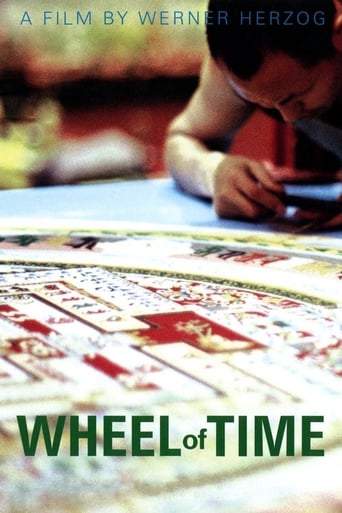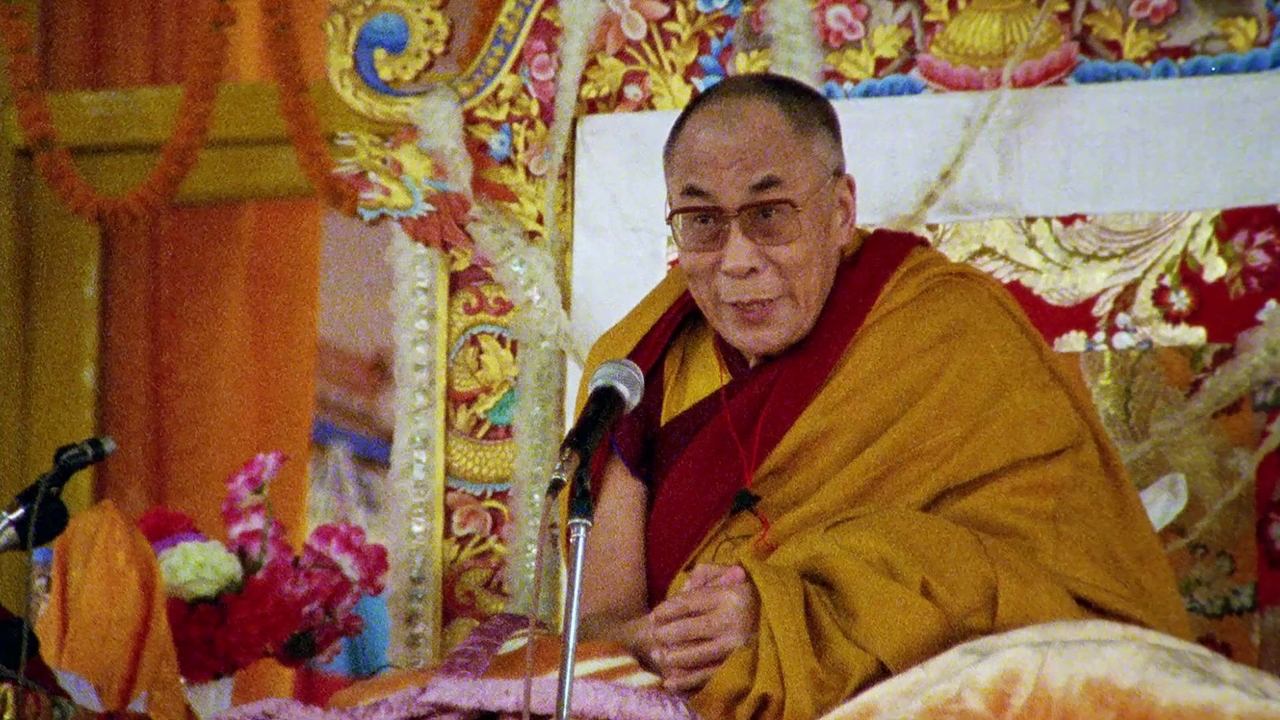tieman64
Werner Herzog's "Wheel of Time" watches as Tibetan Buddhist monks embark on a pilgrimage to Bodh Gaya, India. Once there, they create sand mandalas and engage in a series of elaborate rituals."Everyone is the centre of their own universe," the Dalai Lama tells Herzog. "Wheel of Time" itself seems to, at times, view its monks as being supremely self-centred and myopic. They engage in rituals, ceaseless prostrations, meditation and contemplation, rituals which Herzog devotes large chunks of his film to recording. The goal, we're told, is to achieve a "blissful acceptance of the illusory nature of self", but when does such self-cultivation become selfish and when does detachment from the self become but a dangerous denial of the self? The typical Buddhist argument is that only when we undergo "enough self-transformation" do we begin to see "larger realities beyond the importance of our own personal well-being". But this tends not to result in saintly bodhisattva, but something else entirely. To someone who sees himself and others as unreal, human suffering and death tends to appear laughably trivial."Wheel of Time's" last act delves into the persecution of Tibetans and Buddhists. Elsewhere the impermanence of sand mandalas are likened to the transient nature of all things; humans vanish like dust in the wind. The film climaxes with crowds of Buddhists trampling over one another for gifts, sweets and "blessings", actions which ironically counterpoint the many communal, sacrificial acts routinely committed by the monks.6/10 – Worth one viewing.
SnoopyStyle
It's interesting to read that Werner Herzog wasn't an expert on Buddhism when he filmed this. In a way, that's the charm of this film. Essentially we're given a backstage pass to a Buddhist festival. In Herzog fashion, he holds the camera longer than most, filming his subjects looking for any reaction. In a childlike way, it could be very compelling. Especially since this world is so strange to most westerners that the audience is like any tourists in a strange land. We stare a little too long.My only complaint is he ended the movie in the wrong place. Just because The Dalai Lama couldn't finish the rituals doesn't mean the movie needs to go to another continent to find a happy ending.
brokengambler
There is something about the subject of this documentary which outweighs the documentary itself. The public spectacle of people gathering for this ceremony, the interaction between the participants, the life of all these people are very wonderful things (as all lives are, but their taking part in a Buddhist ceremony brings this out)There was this highly revealing moment in the film though where it was mentioned that the Dalai Lama does not feel people should convert from the religion of their home culture, but despite that fact he was going to Austria to do the ceremony for a group of Austrian Buddhists. Within that statement you get the whole dilemma of a spiritual/political leader, who is forced by political situations to sell himself to Westerners who think of his and his people's lifestyle as either quaint or mysterious, not just a lived lifestyle, that people are content and happy living without thinking themselves quaint or mysterious.If you doubt that the west has these preconceived notions about Tibet, this movie should be a good lesson. Herzog dubs segments with "world music" that seems to have been recorded in Hollywood, he makes clichéd pseudo "mysterious" statements, and continually accentuates "the difference from Westerners." One has a feeling that this is an anthropological film on a dying people, as opposed to a documentary about a living one... and I think the Tibetans deserve better than that.If this film was made by someone who just wanted to show how this ceremony was done, and how the people at the ceremony interact with it, then it would have been truly great. Herzog's voice over track just leaves you feeling sick.
fearless_green
I just saw Wheel of Time yesterday at its premiere in Toronto, where Herzog was present. As usual, Herzog creates a compelling film: a portrait of a traditional Bhuddist initiation ceremony. Specifically, we are shown the pilgrimmage of hundreds of thousands of people to India and one year later, to a similar ceremony in Austria. On a purely documentary level, this winning film is a fascinating piece, giving insight into this ancient ceremony (including the pilgrimmage itself), as well as showing us the painstaking construction of a large "mandala" made out of colored sand, with a "wheel of time" intricately designed in its center. The interviews with the Dalai Lama were interesting and even humorous. On an artistic level, it is also a winner, as Herzog mixes stylistic poses and environmental landscapes within the structure of the documentary. Of course, Herzog's critics call this self-indulgence, but I strongly disagree. Herzog operates on a subconcious level in most of his films, including his narrative features, and actually succeeds where other "artsy" filmmakers fail miserably. Herzog has produced yet another fascinating masterpiece.


 AD
AD
